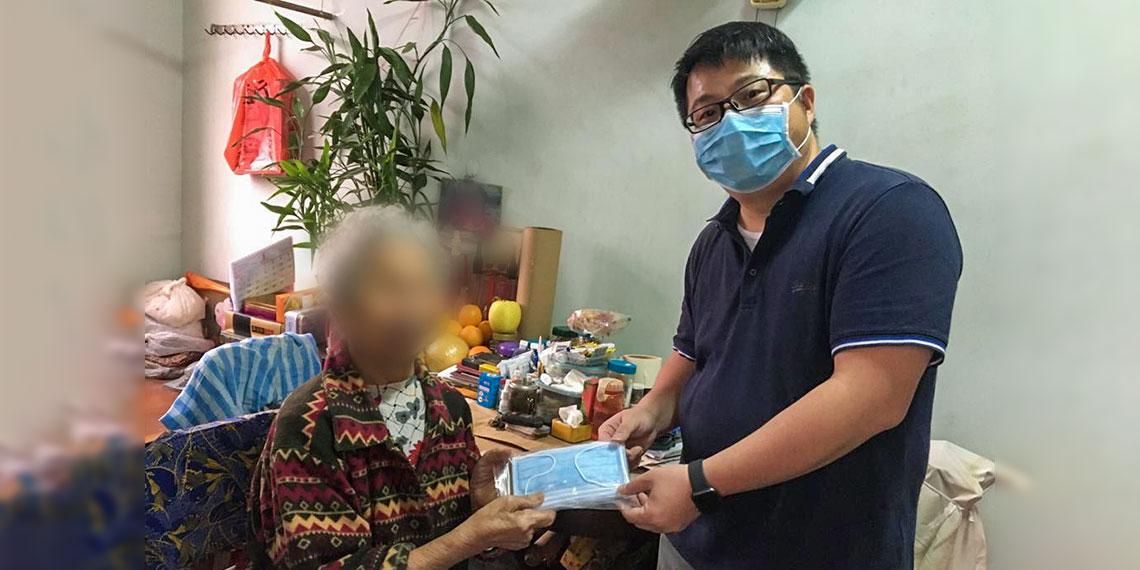You are here
The Salvation Army in Hong Kong, Macau and Taiwan Responds to Coronavirus Outbreak

Salvation Army members and staff in Hong Kong, Macau and Taiwan are continuing to provide whatever assistance they can despite the restrictions that have been put in place to slow the spread of the 2019 Novel Coronavirus.
Major Eva Chow (Corporate Communications Director for The Salvation Army’s Hong Kong and Macau Command) reports: ‘Even with the anxiety surrounding the Novel Coronavirus here in Hong Kong and Macau, we are very proud of the corps officers, soldiers and staff from our social services who brave the uncertainties and visit many families in their communities – especially the elderly and house-bound – to provide them with essential foodstuffs, meals and masks for their protection.’
The Hong Kong and Macau governments have implemented enhanced disease prevention and control measures to reduce the flow of people between the mainland and Hong Kong/Macau borders.
Hong Kong has already suspended passenger clearance services in 10 control points and plans are in place for a 14-day mandatory quarantine on all people entering Hong Kong from the mainland. Macau has tightened its border policy and has suspended government administration, social services and schools.
To mitigate close contact and potential infection, programmes and activities in Salvation Army corps (churches) have been suspended, although some corps have used recording or live-streaming to share their Sunday worship. Major fundraising programmes and events have also been suspended.
All classes in our 35 educational services – from kindergartens to schools – are suspended until 2 March and the 80-plus social centres and services are suspended or have limited service. Staff have adopted home working or split teams to keep essential programmes operating. (This follows directives from the relevant Hong Kong and Macau authorities.)
Other centres – including command headquarters – are running limited services and adopting home working where possible. Staff in the two offices on mainland China have reported back to work after being required to stay at home, but they have a shortage of masks. They have shared their concerns but are holding up well despite the anxieties they face.
As there is an acute shortage of surgical masks, the command has appealed to International Emergency Services and the wider Salvation Army for assistance. When they have been sourced, the masks will primarily be used by frontline personnel, students, service clients and residents.
In the meantime, enhanced personal hygiene practices are in place at home and in offices, corps, schools and centres.
Facing up to what is proving to be a severe challenge, Lieut-Colonel Bob Lee (Officer Commanding, Hong Kong and Macau Command) says: ‘God is our great healer and no disease or illness will prevail against him. We stand on this truth as the world battles against this damaging virus. We stand united with one another and pray God’s peace and healing for the nations.’
Writing from Taiwan, Major David Kinsey (Regional Commander) reports that, in a country where masks are worn extensively, they are being worn by everyone in public places – even by westerners. It is now actually mandatory to wear a face mask in public places like hospitals and government offices, and Taiwan has issued rationing on mask purchases
‘Whilst there has naturally been an increase in feelings of anxiety and fear, mainly with the elderly and vulnerable,’ says Major Kinsey, ‘within Salvation Army circles I am sensing an attitude of carefulness balanced with a resoluteness to “carry on”. The coronavirus has obviously featured highly in the topics of prayer and it has been encouraging to hear a sense of faith and trust in God.
‘The Taiwan Region is considering whether or not to continue with some key public events over the next six months and leadership is considering a response to the continued need for provision, for example through our homelessness caring centre in Taipei.’
As plans are made for whatever the coming days hold, the major is certain that the Taiwan Region ‘will continue to be and show the love of Jesus Christ’.
Report compiled by IHQ Communications
International Headquarters